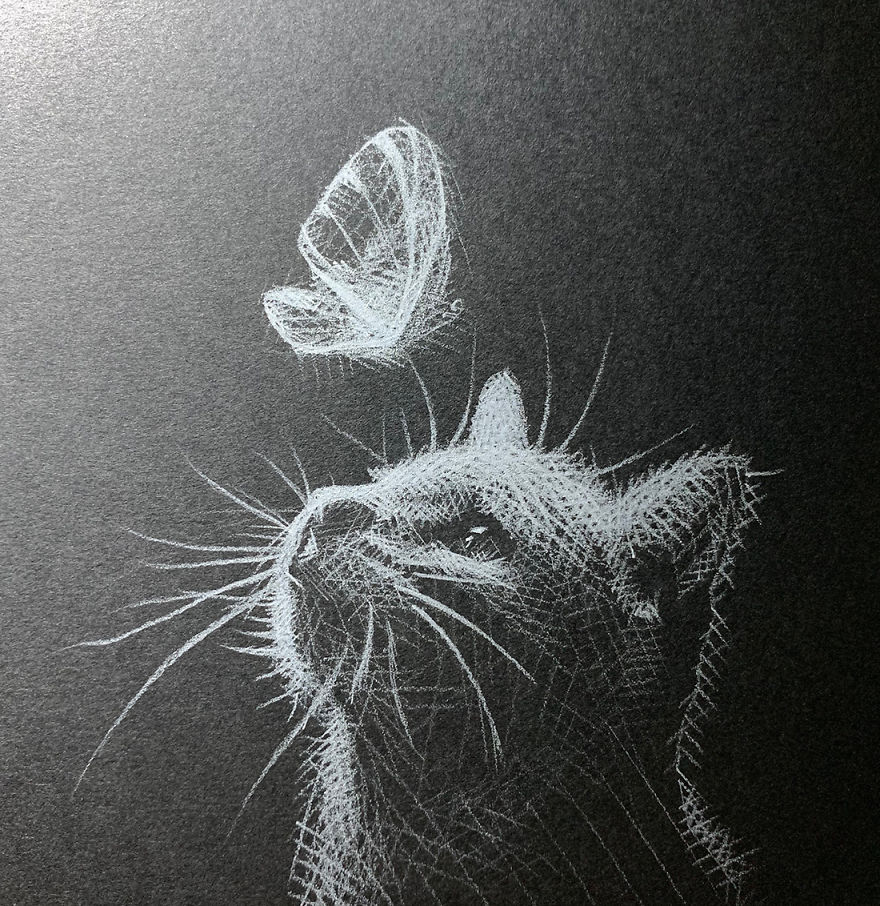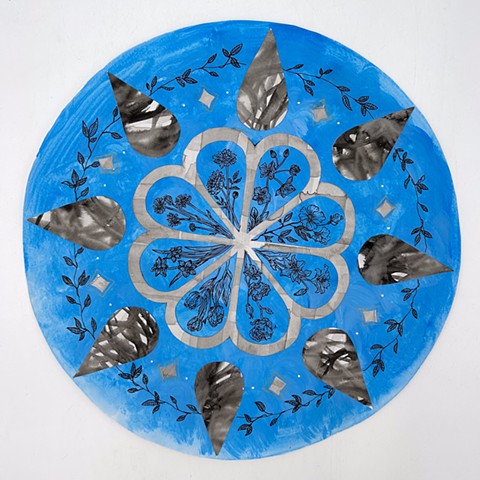The word "art" has many meanings, such as an ability (the human ability to create things of beauty and things that stir us; skill, mastery and creativity across all fields of study), ___________ (different classifications of art such as drawing, sculpting, etc.), or product
What is process?
A "singularity in space", one of the most fundamental elements of art, is also known as _____________
What is point/line?
Also want to be able to identify organic vs. geometric shapes
If you add white to a color, it is known as a _______
What is a tint?
* Adding black to a color = shade
Also want to know the definitions of hue, intensity/saturation, and value
_________ analysis is aesthetic, or visual, discussion describing the work in terms of the elements and principles of art
What is formal?
"Product", in relation to art, refers to ______________
What is the completed work (ex. painting, sculpture, etc.)?
Identify the overlapping line technique pictured here:

What is cross-hatching?
Used to suggest form/volume
Trompe L'Oeil, or "to fool the eye", is also known as ___________ in the interior decorating industry
What is faux finishing?
Art type with actual movement

What is kinetic art?
True or False:
Representational art contains imagery not depicting anything we can recognize from the real world
The seven elements of art discussed in this class were point/line, ________, form, space/time, __________, value, and ____________
What are shape, texture, and color?
Identify the color harmony pictured below:

What is complementary? (right across from each other on the color wheel)
Also want to be able to identify analogous, primary, and secondary color schemes
The nine principles of art discussed in this class were movement, __________, rhythm/repetition, ___________, proportion/scale, ____________, variety, contrast, and focus/emphasis
What are pattern, balance, and unity?
Provide an example for each art form:
* Performing Arts
* Literary Arts
* Visual Arts
What is:
* Performing arts: theatre, dance, film
* Literary arts: poetry, fiction, non-fiction
* Visual arts: sculpture, ceramics, painting
________________ is the concept that items further away from the viewer are grayer/bluer and less distinct, creating a "fog effect"
What is atmospheric perspective?
Implied texture refers to _____________________
textures that appeal to the eye rather than the hand (actual texture)
_____________ refers to the process of arranging visual elements according to their order of importance (ex. hierarchy of scale)
What is visual hierarchy?
Also want to be able to identify/define afocal art
If the purpose of art is one or more forms of communication with yourself and/or others, name at least three goals for this type of communication (ex. persuasion - not eligible as one of your three)
What are:
• Appreciation
• Commentary
• Remembrance
• Ritual
• Repetition
• Self-Expression
• Entertainment
Identify the term that best fits this image, which could have two different subjects

What is figure/ground ambiguity?
Relates to space/time element
Identify the storytelling format pictured below:
What is continuous narrative/narration?
Also want to be able to identify sequential art
Identify the balance type pictured here:

What is radial?
Also want to be able to identify symmetrical and asymmetrical examples